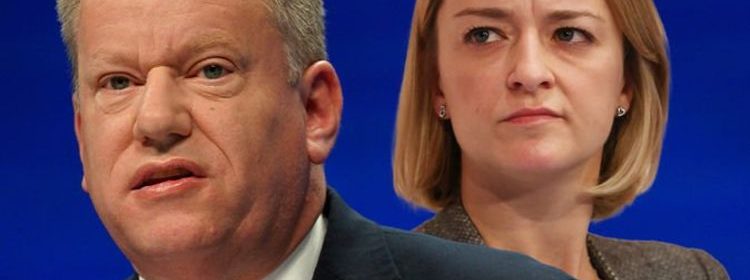‘Lose, lose, lose!’ BBC’s Laura Kuenssberg reveals UK fears Article 16 fallout in EU feud

Brexit: Lord Frost hits out at EU over Northern Ireland Protocol
We use your sign-up to provide content in ways you’ve consented to and to improve our understanding of you. This may include adverts from us and 3rd parties based on our understanding. You can unsubscribe at any time. More info
The UK has repeatedly refused to rule out activating Article 16 – and therefore suspending parts of the controversial Northern Ireland Protocol. Brexit Minster Lord David Frost and European Commission vice-president Maros Sefcovic concluded the latest round of post-Brexit talks on Northern Ireland without making a significant breakthrough.
The Protocol was created to prevent a hard border on the island of Ireland by keeping Belfast in the EU single market – but Unionists say this has created a trade barrier between Great Britain and Northern Ireland.
UK officials argue the EU is being overzealous with the implementation of customs rules, which have previously threatened to ignite a trade war over chilled meats and medicine supplies.
The EU has since rowed back on its demands by putting forward plans to reduce checks on 80 percent of goods in Northern Ireland – but the UK argues this does not go far enough and has also called for the removal of the European Court of Justice in any disputes.
Lord Frost has threatened to trigger Article 16 since he published a list of the UK’s demands in a Command Paper in July.


The emergency measure could suspend major parts of the protocol as well as customs arrangements and VAT rules.
One cabinet minister told the BBC’s Political Editor: “The mechanics aren’t controversial, the difficult decision is how far you want to go.”
Meanwhile, another diplomat was more wary of the impact of the decision.
They told Ms Kuenssberg triggering Article 16 would be “lose, lose, lose”, and could cause a “total breakdown of trust, and a deep freeze in relations” between London and Brussels.
Article 16 of the Northern Ireland Protocol can be unilaterally enforced by either side if the Brexit agreement is leading to “economic, societal or environmental difficulties”.

Ms Kuenssberg believes it is now “inevitable” the last-resort measure will be used.
She wrote: “The admission that Boris Johnson’s team believed there was something seriously up with the deal to start with has not exactly put the EU in the mood for compromise.
“And what Brussels has been willing to budge on so far has not been nearly enough to satisfy No 10.
“For political and practical reasons therefore, it seems almost inevitable that unless the European Union changes its position in a significant way, and soon, that the UK will trigger Article 16.”
Ms Kuenssberg also suggested talks were underway to kick-start the process “early next week”, but it is understood ministers would only do so if they were confident they had sufficient evidence to prove the move was necessary.
DON’T MISS
Biden blasted by furious Britons over Brexit intervention [INSIGHT]
Royal Family LIVE: Harry praised as he marks Remembrance Day [LIVE]
Snow to hit UK within days as freezing weather takes its toll [FORECAST]

She added: “Without getting too technical, the trigger could end up with grumpy talks dragging on over many months with lots of politicking but not much changing practically.”
Following the latest round of discussions on Friday afternoon, Mr Sefcovic said “serious headway” was needed in negotiations, but insisted there had been a “change in tone” from the UK.
A UK Government spokesman said there was still “significant gaps” and noted the use of Article 16 remained a “legitimate part of the protocol’s provisions”.
He said: “Lord Frost noted that there remained significant gaps to be bridged between the UK and EU positions.

“He noted that, as set out to the House of Lords on November 10, it remained the UK’s preference to find a consensual way forward, but that Article 16 safeguards were a legitimate part of the protocol’s provisions.
“Lord Frost also underlined the need to address the full range of issues the UK had identified in the course of discussions, if a comprehensive and durable solution was to be found that supported the Belfast Agreement and was in the best interests of Northern Ireland.
“In this context, although talks had so far been conducted in a constructive spirit, Lord Frost underlined that in order to make progress, it was important to bring new energy and impetus to discussions.”
Source: Read Full Article
